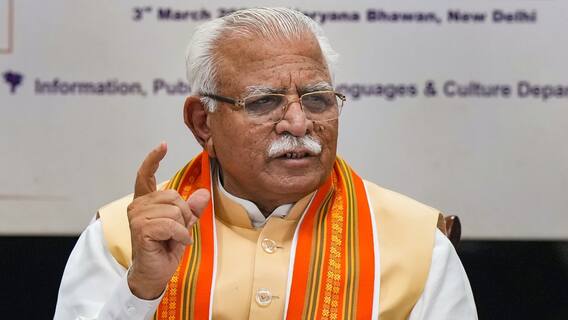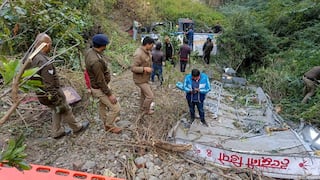Life Of Charles Sobhraj, The 'Bikini Killer' — A Timeline
Charles Sobhraj was arrested in India for murdering a French tourist in 1976.

Charles Sobhraj, the infamous ‘Bikini Killer’ has made headlines after the Nepal Supreme Court ordered his release and immediate deportation to his home country, France. His life story is no less than a film filled with thrill, murder, crime, family history, love life and much more.
Here’s a timeline of how Charles Shobhraj became what he is known as today:-
His Indian Connection
Charles Sobhraj was born in then-French-occupied Saigon. His father was an Indian businessman and mother a Vietnamese shop assistant. His parents were not married, and reports say, his father never acknowledged paternity.
He later moved to France after his mother married a French soldier.
Early Years Of Crime
Initially, Sobhraj took to petty crimes. At the age of 19 In 1963, he received his first jail sentence for burglary in France. He served 3 years in Poissy prison in Paris before being paroled.
Then again in 1969, he was sent to prison for 8 months for car theft and evading police. He was arrested and sent to prison for an armed robbery at a jewellery shop in Delhi’s Hotel Ashoka in 1973. He borrowed money for bail from his stepfather and fled to Kabul.
Charles' New Journey Into Crime World
He was arrested in Kabul for robbing tourists on the "hippie trail". But he escaped the same way he had in India.
He was on the run for the next two years, using as many as 10 stolen passports and visiting several countries in East Europe and the Middle East.
The 1975 Murder
Charles was joined by his younger brother Andre in Istanbul in 1975 and they quickly became partners in many crimes in both Turkey and Greece. They were arrested in Athens, but Shobraj escaped leaving his brother to serve an 18-year sentence.
In the same year, the badly burnt bodies of American tourist Connie Jo Bronzich was found in Kathmandu valley. Another unidentified body of a man was also found there. The police later claimed the body to be of Canadian Laurent Armand Carriere.
His Arrest In India
Charles was arrested in India in 1976 and was sentenced to 12 years of prison term in Delhi for the murder of French tourist Jean-Luc Solomon. But he escaped from New Delhi’s high-security Tihar jail after drugging guards with sedative-laced sweets in 1986.
In April of the same year, he was again arrested in Goa and received 10 years added jail term to the existing murder sentence.
A BBC article says he “deliberately escaped towards the end of his 10-year jail term in order to be re-captured and face new charges for his escape. That way he could avoid extradition to Thailand where he was wanted for five murders and would almost certainly be given the death penalty. By the time of his release in 1997, the 20-year time-frame for him to be tried in Bangkok had lapsed.”
In February 1997, he was released after serving 21 years in jail and returned to Paris.
Charles' Arrest And Conviction
In September 2003, Sobhraj was detained from Kathmandu`s Royale Casino on charges of travelling on a fake passport. A Nepal court, in 2004, sentenced him to life imprisonment in the 1975 murder case of US citizen.
In 2008, Sobhraj announced his engagement to Nihita Biswas, a 20-year-old Nepali girl, the daughter of his lawyer Shakuntala Thapa. Notably, Nihita has been a contestant in the famous reality show, Bigg Boss.
The same year, Nepal`s Supreme Court convicted him in the 1975 murder case and upheld the sentence of life term awarded to him by lower courts.
Sobhraj has been accused of around 20 murders and has been accused of stealing the passports of people he had killed. He has been known as the ‘Bikini killer’ because some of his victims were found in bikinis.
Journalists and law enforcement authorities who interacted with him found Sobhraj to be suave and charming, qualities which helped him commit his crimes, recruit accomplices, and also evade punishment. He was arrested several times in several countries but fled or bribed his way out.
JP Naithani, who was then deputy superintendent at Tihar jail, wrote in The Indian Express, “I have seen him in different modes of life inside the jail: fighting his legal battle in the local courts, dealing with journalists and lawyers, and working on his book Serpentine — which turned out to be a bestseller — and always charming his female visitors. He had a fair number of them, some even from overseas, who would come confessing eternal love. Some of them wanted to marry him and even applied to the courts for permission. Such was his persona.”
Trending News
Top Headlines







































